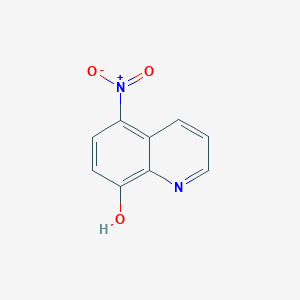-
Categories
-
Pharmaceutical Intermediates
-
Active Pharmaceutical Ingredients
-
Food Additives
- Industrial Coatings
- Agrochemicals
- Dyes and Pigments
- Surfactant
- Flavors and Fragrances
- Chemical Reagents
- Catalyst and Auxiliary
- Natural Products
- Inorganic Chemistry
-
Organic Chemistry
-
Biochemical Engineering
- Analytical Chemistry
- Cosmetic Ingredient
-
Pharmaceutical Intermediates
Promotion
ECHEMI Mall
Wholesale
Weekly Price
Exhibition
News
-
Trade Service
On March 5, the Central Committee of the Communist Party of China and the State Council issued the Opinions on Deepening the Reform of the Medical Security System.
Opinion clearly defines the principles and main tasks of the reform and development of health care reform in the new era, and will serve as a guide for the reform and development of health care reform for a long time to come.
In this context, under the leadership of the Organization of the State Health Insurance Administration, China Medical Insurance magazine held a series of symposiums on deepening the reform of the medical security system, aiming to conduct in-depth discussions on topics of higher social concern, wider impact, controversial points and point-of-view orientation put forward in the Opinions, and actively guide public opinion towards development, leading the way for the smooth development of related reform work. The first seminar of
with the theme of "sound medical insurance and relief system for serious and serious diseases" was discussed in depth by the experts who discussed the problems of establishing and perfecting the insurance and medical assistance system for major diseases and constructing a comprehensive security pattern.
March 2012, the State Council issued the "12th Five-Year Plan" period to deepen the reform of the medical and health system planning and implementation plan, clearly proposed to "explore the establishment of a mechanism for the protection of serious and serious diseases."
november of the same year, the report of the 18th National Congress of the Communist Party of China proposed "the establishment of a mechanism for the protection and relief of serious and serious diseases".
2019, the Fourth Plenary Session of the 19th Central Committee of the Communist Party of China explicitly called for "a sound medical insurance and relief system for serious and serious diseases."
March 2020, the Central Committee of the Communist Party of China and the State Council issued the Opinions on Deepening the Reform of the Medical Security System, which once again proposed "a sound medical insurance and relief system for serious and serious diseases".
to further reduce the cost burden of patients with major diseases and work together to prevent the risk of poverty return due to illness is the main policy objective of improving the medical insurance and relief system for serious and serious diseases.
By combing the existing triple protection system for the protection policy for patients with major diseases, it will help to further clarify the functional orientation of the systems in the protection of serious and serious diseases, and will help to enhance the bottom protection function of the medical security system, promote the organic convergence of the various systems, and give full play to the joint efforts of the protection.
, the connotation of the medical security system of heavy and extreme diseases and multi-level medical security system on the concept of "heavy and extreme diseases", china has not formed a unified and clear definition at the academic or national policy level.
practice, there are diseases defined, there are to determine the cost, but also a combination of the two to determine.
No matter how to define "heavy and extreme diseases", it can be determined that the establishment of the medical expenses of serious diseases is to reduce the burden of personal medical expenses of the masses, reduce the occurrence of disease-related poverty, disease-related return to poverty.
to achieve the goal of comprehensive burden reduction, basic medical insurance alone can not be solved, we must give full play to the overall function of multi-level medical security system.
In 2009, the Central Committee of the Communist Party of China and the State Council issued the Opinions on Deepening the Reform of the Medical and Health System (Zhongfa (2009) No. 6): "Speed up the establishment and improvement of a multi-level medical security system covering urban and rural residents, supplemented by basic medical security, supplemented by other forms of supplementary medical insurance and commercial health insurance."
" thus, the multi-level medical security system consists of basic medical security, supplementary medical insurance and commercial health insurance, with the introduction of relevant policy documents, medical assistance for serious diseases, charitable assistance, etc. have also been included in the multi-level medical security system.
In 2020, the Central Committee of the Communist Party of China and the State Council issued the Opinions on Deepening the Reform of the Medical Security System, which states: "By 2030, the medical security system with basic medical insurance as the main body and medical assistance as the base, supplementing medical insurance, commercial health insurance, charitable donations and mutual development of medical assistance" will be fully completed, further extending the connotation of the multi-level medical security system.
II. In 1998, the State Council promulgated the Decision on the Establishment of the Basic Medical Insurance System for Urban Workers (Guofa (1998) No. 44), which clearly proposed that the Employees' Medical Insurance Fund adopt a combination of the overall fund and the individual account.
co-ordination fund is mainly used to protect large medical expenses caused by hospitalization, and personal accounts are mainly used to protect outpatient medical expenses.
In January 2003, the General Office of the State Council issued the Notice on forwarding the opinions of the Ministry of Health and other departments on the establishment of a new rural cooperative medical system (State Office issued No. 3 of 2003) clearly referred to "the rural cooperative medical fund mainly subsidizing the large medical expenses or hospitalization expenses of farmers participating in the new rural cooperative medical care".
In June 2010, the former Ministry of Health and other departments issued the Opinions on The Pilot Work on Improving the Level of Medical Security for Major Diseases in Rural Children (Wei Nong Weifa (2010) No. 53), proposing to take medical security for major diseases in rural children as a pilot and explore the establishment of medical security for major diseases in rural areas.
November 2012, the former Ministry of Health issued the Opinions on Speeding Up the Medical Security of Major Diseases in Rural Residents (Wei Political and Legal Development (2012) No. 74), which expanded the number of major diseases to 20.
In 2007, the Guidance on the Piloting of Basic Medical Insurance for Urban Residents (No. 20 of Guofa (2007)) promulgated by the State Council explicitly proposed the establishment of a "basic medical insurance system for urban residents mainly based on the overall planning of major diseases" and "the basic medical insurance fund for urban residents focused on inpatient and outpatient medical expenses for insured residents".
The Ministry of Human Resources and Social Security issued in 2011 the Opinions on the General Implementation of the Outpatient Co-ordination of Basic Medical Insurance for Urban Residents (No. 59 of the Ministry of Human Resources and Social Security), proposing that the co-ordination of outpatient clinics "focuses on ensuring that the masses bear a heavy burden of multiple morbid and chronic diseases".
Whether it is the medical insurance of workers or the integration of urban and rural unified residents' medical insurance, the focus of its protection is on inpatient medical expenses, in order to further reduce the burden of personal medical expenses, the establishment of outpatient chronic diseases and special diseases security system, to ensure that some of the common outpatient medical diseases, multiple morbidity, some medical expenses bear a heavy burden of major diseases.
The relevant safeguards for the supplementary medical insurance system In 2000, the State Council issued the Notice on the Issue and Improvement of the Pilot Program for the Improvement of the Urban Social Security System (Guofa (2000) No. 42), encouraging local governments to implement the system of large-scale medical expenses subsidies for workers on the basis of basic medical insurance for workers.
At present, socialized management of large-scale medical expenses of workers in various places to compensate for large-scale medical expenses above the cap line of basic medical insurance, some enterprises and institutions set up enterprise supplementary medical insurance, civil servants and some institutions set up a civil servants medical assistance system.
in order to effectively solve the problem of disease-related poverty caused by patients with serious and serious diseases, in August 2012, the National Development and Reform Commission and other departments promulgated the Guidance on the Implementation of Insurance for Major Diseases of Urban and Rural Residents (No. 2605 of the National Development and Reform Society (2012).
January 2014, the Medical Reform Office of the State Council promulgated the Notice on Speeding Up the Work of Major Disease Insurance for Urban and Rural Residents (No. 1 of 2014), calling for the comprehensive launch of the pilot work on insurance for major diseases of urban and rural residents in 2014.
of urban and rural residents' major illness insurance can be considered as an extension of basic medical insurance for urban residents and new rural cooperative medical insurance (the latest two are integrated into basic medical insurance for urban and rural residents).
, in the case of high medical expenses due to serious illness, the urban residents' medical insurance, new agricultural compensation after the need for personal burden of compliance medical expenses to be further paid.
The main policy arrangement of medical assistance is to alleviate the burden of low-income people in difficulty or families who still have heavy burdens of medical expenses after reimbursement of basic medical insurance, China established rural and urban medical assistance systems in 2003 and 2005 respectively, and by the end of 2008 had basically achieved full coverage of urban and rural areas.
The object of assistance is mainly limited to the low-insured object, the five-insured object, the low-income families of the seriously ill, low-income families of the elderly and the severely disabled and other special hardship groups, the mode of assistance to support the difficult groups to participate in basic medical insurance and major disease relief, focusing on helping to solve the medical expenses of the individuals hospitalized due to illness.
scope of assistance is linked with basic medical insurance and major disease insurance, and the "disease" and "cost" methods are widely used to provide assistance to patients suffering from malignant tumors, chronic renal failure and other major diseases with high cost burden.
2009, the Ministry of Civil Affairs issued the Opinions on Further Improving the Medical Assistance System in Urban and Rural Areas (No. 81 of minfa (2009)), further emphasizing the need to include seriously ill patients from low-income families in the scope of medical assistance in urban and rural areas.
In order to help solve the medical difficulties of the poor patients with serious and extreme diseases, the Ministry of Civil Affairs, the Ministry of Finance, the Ministry of Human Resources and Social Security and the former Ministry of Health jointly issued the Opinions on the Pilot Work of Medical Assistance for Major Diseases in March 2012.
In 2015, the General Office of the State Council issued the Notice on forwarding to the Ministry of Civil Affairs and other departments, and on further improving the medical assistance system to carry out medical assistance work on serious and serious diseases in an all-round way (State Administration issued No. 30 of 2015), further expanding the scope of the scope of assistance, and proposed to explore the "high medical costs, more than the family can afford, the basic life of serious difficulties in the family of seriously ill patients" to give relief.
In February 2017, the Ministry of Civil Affairs and six other departments issued the Notice on Further Strengthening the Effective Link between Medical Assistance and Urban and Rural Residents' Insurance for Major Diseases (Minfa (2017) No. 12), which clearly proposes to provide medical assistance to people with serious illnesses who are still in difficulty after being reimbursed for major diseases, special hardship case personnel, low-income and severely disabled people (including low-income elderly, minors, seriously ill patients).
August 2020, the General Office of the CPC Central Committee and the General Office of the State Council issued the Opinions on Reforming and Perfecting the Social Assistance System, which proposed urgent social assistance to families or individuals suffering from major illnesses.
the protection of commercial health insurance in the commercial health insurance category, sickness insurance and medical insurance can be used to mitigate the risk of medical expense burden.
Among them, the major illness insurance is a common type of disease insurance, the main protection of diseases stipulated in the contract, when the insured suffers from the major illness specified in the policy, the insurer shall pay the insurance premium according to the fixed amount stipulated in the contract, and some major illness reimbursement may also be attached to the survival insurance, death insurance or agreed dividends.
Unlike disease insurance, which usually determines the content of protection by disease, commercial medical insurance mainly guarantees the medical expenses agreed in the contract, and some medical insurance takes the combination of medical expenses and diseases to set up the protection content, and the insurer generally pays the agreed medical expenses proportionally.
form of charity in the protection of serious diseases was established in 1994, marking the beginning of modern philanthropy in China.
, China's charitable organizations developed rapidly, the number of enterprises and individuals eager to charity and public welfare undertakings increased rapidly, and the activities of charitable organizations permeated many aspects of social life, medical assistance is an important part of it.
In order to give full play to the positive role of philanthropy in helping the sick and the needy, in 2013 the Ministry of Civil Affairs issued the Guidance on the Convergence of Medical Assistance and Philanthropy (Minfa (2013) No. 132), proposing to "actively explore the establishment of a bridge mechanism between medical assistance and philanthropy", as an important means to resolve the risk of serious diseases, and established philanthropy as an important supplementary status of medical assistance, while the protection of major diseases as the focus of charity.
present, social organizations and public welfare organizations engaged in medical assistance show diversified development characteristics, large and small scale, different scope of business, different sponsors.
the term "medical mutual assistance", the main form of medical assistance in the protection of serious and serious diseases, first appeared in the multi-level medical security system, which is mainly manifested in the form of mutual medical assistance among employees and mutual medical assistance on the Internet.
medical assistance for workers and workers is implemented by trade union organizations, employees voluntarily pay contributions to participate in, not for profit for the purpose of mass mutual assistance protection.
In March 2009, the Central Committee of the Communist Party of China and the State Council issued the Opinions on Deepening the Reform of the Medical and Health System (Zhongfa (2009) No. 6), which put forward the request of "encouraging trade unions and other social organizations to carry out various forms of medical mutual assistance activities", so that the important function of medical assistance for workers to effectively alleviate the risk of serious diseases can be further revealed.
Network medical mutual assistance is a new form of medical mutual assistance in recent years, mainly relying on Internet technology, mostly organized by the Internet platform, voluntary participation of the public, to achieve mutual assistance among members of the risk of disease and accidental injury protection, mainly to protect the pre-agreed diseases.
3. Although China's basic medical insurance system has covered the vast majority of the population, but some of the heavy burden of patients with serious diseases still exists, the main reasons for analysis are: First, the basic medical insurance to protect inpatient, outpatient major diseases, outpatient co-care is insufficient.
medical insurance to solve outpatient expenses with the individual accounts of employees, residents' medical insurance has carried out general outpatient co-ordination, but the level of protection is low.
most places in the country adopt the method of including outpatient diseases according to the type of disease, and ensure that the types of diseases are limited, so that some chronically ill patients, especially low-income people, still need to bear relatively high outpatient medical expenses.
Second, the basic medical insurance fair and universal treatment payment, starting line, capping line, reimbursement ratio of the standard setting, everyone is the same, failed to take into account the differences in the ability to pay the difficult groups.
some people in difficulty, although insured with government subsidies, but because of the low level of income, will still be because of the high starting line, low reimbursement ratio, high costs above the cap line, can not afford personal out-of-the-box expenses.
3 is a number of patented drugs for the treatment of malignant tumors, orphan drugs for rare diseases, as well as some of the more expensive medical equipment and materials, expensive.
it is difficult to cover all of the health-care fund balances when they are limited.
fourth is medical rescue.







